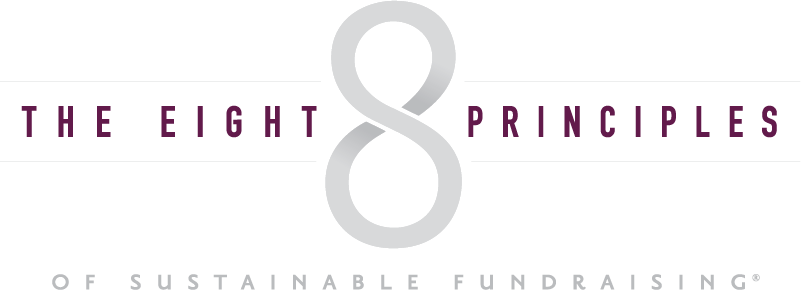In this guest post by Eight Principles Fellow, Matt Hugg, the connection between life-learning and effective leadership is thoughtfully and thoroughly parsed.
Principle 3 of The Eight Principles® is Leadership Leads™. Seems self evident. However, one of the least understood aspects of strong leadership is the interest in, ability to, and facilitation of, learning.
It’s almost counter-intuitive. After all, if someone is a leader, you’d be tempted to think that they know all there is to know about whatever it is to know of the organization and people they lead. But as someone, a great leader, no doubt, said, “a great leader surrounds themselves with people who are smarter than them.” In other words, they have tutors close at hand to teach them what they need to know so they can be an effective leader.
In short, leaders are learners.
It starts with programming.
Nonprofits need leader-learners as much as, if not more, than any other sector of the economy. It starts with the ability to manage change. In just about every mission that nonprofits serve, change is a fact of life. Global climate change, pandemics, government regulations, social trends, and so much more are like sands sifting under the feet of every organization. To ignore these changes is foolish, if not downright threatening to the survival of the nonprofit, even when they seem not to directly impact how a nonprofit delivers its programs and services.
Many nonprofits approach their mission with a fatal flaw that, unfortunately, isn’t limited to small start-ups who could be forgiven for their naivete: they’re well intended. “Well intended?” you’re probably asking. “What wrong with that?” Nothing if you want to help your sick neighbor with their lawn, only to find out that their son is already doing it or show up to a party with a dessert that nobody likes. It’s a major problem if you plan to address homelessness and don’t understand mental health issues, or “cleanup” a forest, thereby destroying critical habitat for your target species’ food source.
No, you need to be experts in how you support your mission—from the bottom of your organization chart to the top. And developing professional expertise means learning.
Everyone is drawn to a nonprofit’s mission, but nonprofits don’t run on their mission alone. To the disappointment and surprise of many, a very large proportion of a nonprofit staff and volunteer’s day-to-day work is spent on infrastructure issues. Budgets, facilities, human resources, volunteer management, marketing, and fundraising all take time and expertise, even for those who don’t have those words in their job titles. A smart nonprofit will reward expertise in these areas every bit as much as it would for program expertise. Why? If you don’t do well at what undergirds your programming, your programming will be much less efficient and effective, or may not exist at all. Effective leaders know that.
All this is great, but how do great leaders learn? They can’t all be in classrooms and get their jobs done, right?
Well, that’s not quite true. The most intrepid of leaders actively pursue academic degrees, including doctorates, for their own career opportunities and the benefit of those for whom they work and serve. To be sure, these programs have great financial and time costs associated with them, and if the leader works for a nonprofit, chances are they’re not getting reimbursed for the expense. Academic programs may be specifically on nonprofit topics, such as nonprofit management or fundraising, or they could be more general, such as organizational leadership or business. Increasingly these are online programs, but don’t be fooled. While online degrees are flexible, they are no less rigorous than most classroom experiences.
Then there are “academic lite” programs, such as certificates. If a certificate is offered by an academic institution, then it may be a sequence of regular, academic courses focused on a topic, like fundraising, without the other coursework to round out the degree. From the school’s point-of-view, these are great pipeline programs to take you into degree opportunities. However, some universities and many private nonprofits and businesses offer non-academic programs which also result in some form of certification. These can be excellent programs. Know that the rigor of the program, and thus the value of the credential, really depends on who is offering it and the time they put into developing and delivering the curriculum.
Look for certificates and credentialing through professional associations, as well. Just about every professional association is dedicated to learning in their field. That and networking among members (another kind of learning, albeit informal) are core to their existence. In the nonprofit world, look for the CFRE (Certified Fund Raising Executive) designation, CAE (Certified Association Executive) and the Certificate of Nonprofit Board Education among others.
For those whose focus is relational philanthropy, The Eight Principles offers two certifications which are unique in the nonprofit space, Eight Principles Practitioner for fundraising professionals and Eight Principles Facilitator for those who want to train others in relational philanthropy.
Live, in-person seminars and conferences (which are really just a series of live, in-person seminars in one place with additional speakers and vendors attached) are valuable educational experiences. Enhancing what you will get in your section of the hotel ballroom are all the people sitting with you and the vendors sitting outside. This is the real value-added to the educational experience. The conversation with someone who does your job at another nonprofit may give you more than the hour you both sat watching the speaker at the front of the room. And please, don’t dismiss the vendors. Sure, they want to sell you something. But you’ll find at a nonprofit conference that many, if not most, of the vendors come first from the nonprofit sector and really do want you to succeed. Better yet, they also know others who do what you do. Think of them like honeybees. They cross-pollinate nonprofit flowers with all sorts of information that benefits them and you.
In these days of technology, and the expense and reluctance to travel, a significantly large portion of learning is remote through online webinars and podcasts. Live online sessions offer the core of what you’ll get at an in-person seminar. Recorded content offers the same but on your time schedule. Think of it this way… your boss comes in after a board meeting and says that he’s been asked for a presentation on planned giving to give to the development committee next Wednesday. Sure, you know the difference between a bequest and a charitable gift annuity, but that’s about it. You planned to attend a conference on planned giving next month. Recorded content can save the day—getting you up to speed exactly when you need it, wherever you are, even at home over a weekend. A great place to find this is Nonprofit.Courses, with thousands of videos, podcasts and more, most free and easy to access.
Enhancing all of the above is the learning gained through teaching. It’s one of the dirty secrets of anyone who stands in front of an audience: to put on a credible program, whether a one-off seminar/webinar or a multi-program classroom experience, you must know your subject cold. That means digging deep and learning what you’re teaching. To do otherwise risks embarrassment. Therefore, maybe the greatest leadership through learning is teaching others. It also makes you the authority on the subject to your students—which enhances your leadership posture.
It’s clear that nonprofit leaders have lots of opportunities to model learning whether to their staff or volunteers. Learning is a leadership attribute, but maybe the most subtle among them. Yet the risks of not learning are high… to your programs, to your nonprofit, and to your personal reputation.

Matt Hugg is president and founder of Nonprofit.Courses. He researches and collects the best digital training assets available for nonprofits. His platform also highlights quality live and online events and webinars. Matt, also serves as an Eight Principles Fellow.



